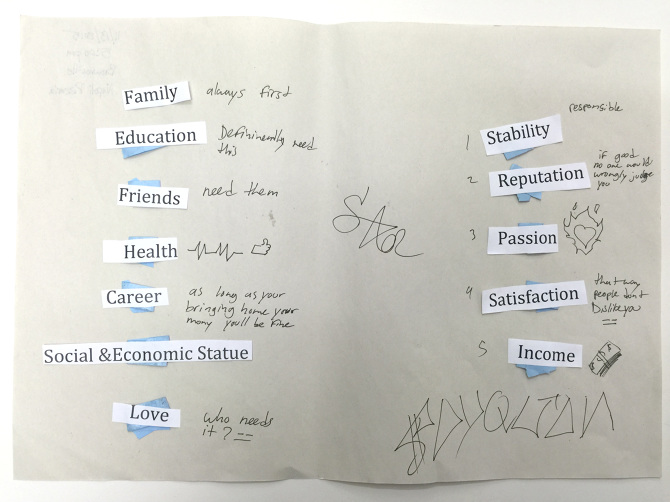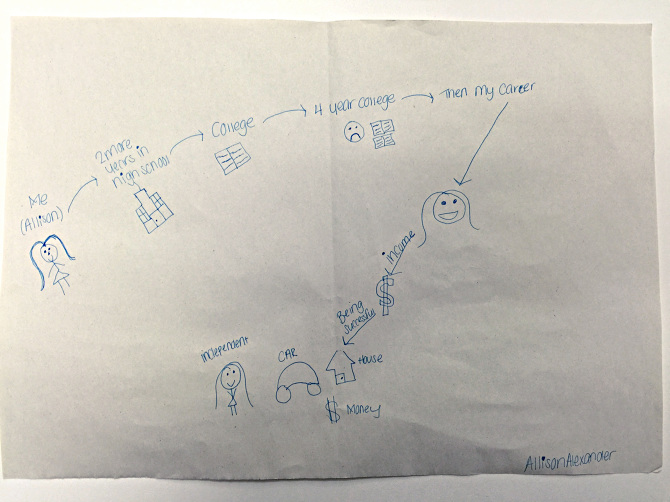Career Prospects for High School Students
How do High-school students living in public housing in Brownsville envision their career goals?
This project aims to understand, through ethnographic research, how students in Brownsville access career-related information and construct their goals in a crucial time where they decide their future.
Our aim with this research was not to create a final product, but to deliver insights that lead to opportunities so that social innovators, investors and public institutions can create programs or solutions to support the students in fulfilling their goals and educational aspirations.
Team: Carmen Lopez, Michael Raineri, Sara Al Kuwari, Siqi Liang and Linjie Deng.
My role: Interviewer, Design Researcher, Project Manager, Film Editor & Project Director.
Meet the Students
Ethnographic Research
We focused our research with high school students through intercepts, interviews and cultural probes. From our long interviews, we identified the four main topics: Motivation, Role Models, Planning and Access to Information.
Findings Among Four Topics
- Money is a motivation because it signifies stability.
- Another motivation for students is to turn better off than their parents.
- Helping people is another drive.
- Students relate more easily to professionals with the same low-income background.
- Successful family members are role models.
- Parents are usually seen as role models due to their effort, not because of their profession.
- Most students create or have a life timeline in mind.
- Their panning is mostly focused on high school (short term goals).
- Rely only on family and school networks.
- Have not met professionals in their career of interest.
- Disengaged from career planning tools and programs.
Opportunities
RELATED TO MOTIVATION:
- Because students feel motivated to succeed to give back to the community that they belong to, there is an opportunity to invest in students who want to serve the community.
RELATED TO ROLE MODELS:
- Because students feel more connected to people who have been raised in public housing, there is an opportunity to connect students to professionals who are in the field that students are interested in.
- Because students need to get exposed to more role models, there is an opportunity to connect classmate's parents between each other to expand network and get exposed to a variety of careers.
RELATED TO ACCESS TO INFORMATION:
- Because most students do not use social media as a way to further learn about their careers, there is an opportunity to teach them about the professional uses of social media.
- Because most students have not met professionals in their career of interest, there is an opportunity to create programs that engage students with professionals in an informal environment.









